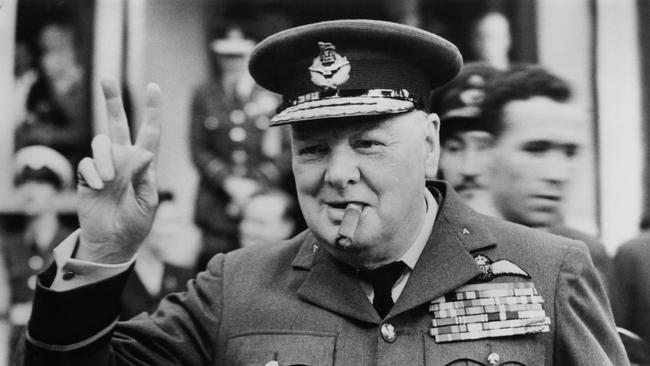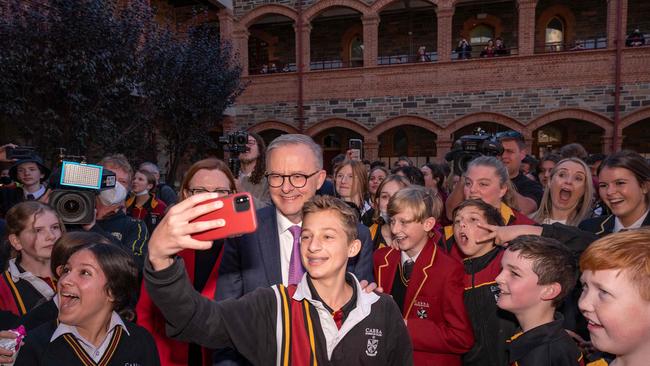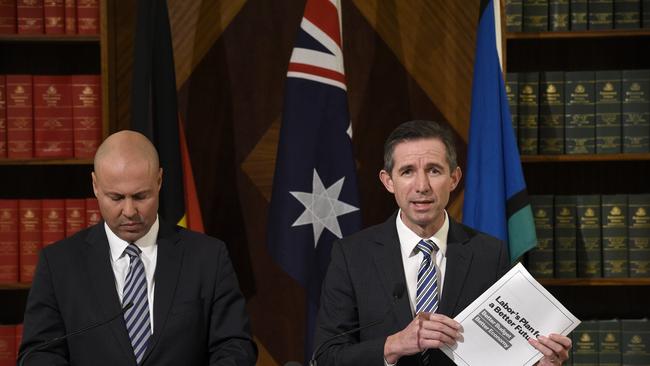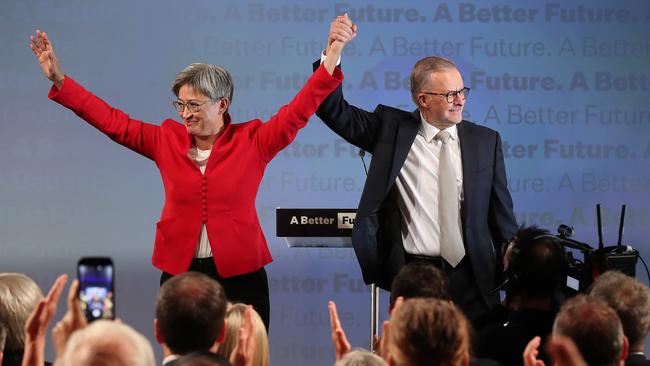Paul Starick: Scene set for Labor victory with Anthony Albanese’s future appeal to quiet Australians
It’s been far from a perfect campaign, but Labor looks set to win today’s federal election. Here’s how Albo has won over the quiet Australians, writes Paul Starick.
Opinion
Don't miss out on the headlines from Opinion. Followed categories will be added to My News.
The scene is set for a Labor victory. The national mood is strikingly similar to that before March’s state election – voters are fatigued and disengaged.
The quiet Australians who propelled Prime Minister Scott Morrison to an unexpected victory in 2019 have become even quieter. Since the pandemic struck in early 2020, they’ve been shuttered at home under the harshest restrictions on civil liberties in Australian history, justified by a public health emergency.
These quiet Australians have been exposed to politicians like never before, with unprecedented coverage of press conferences. They’ve become accustomed to the rapid deployment of massive government spending to save their jobs and stave off economic disaster.
Mr Morrison can justifiably boast of delivering the lowest national unemployment rate since 1974, of 3.9 per cent. He can also point to a mostly successful response to the Covid-19 crisis, with fewer fatalities than most countries.
It should be inconceivable that a government with a strong record in a crisis faces defeat, particularly given major economic headwinds.
But Winston Churchill was swept from office in a 1945 landslide, despite successfully leading the United Kingdom through wartime. His Labour opponents’ manifesto, Let Us Face the Future, urged a “prosperous peace” should follow victory and declared “the nation wants food, work and homes”.

Just like British Labour then and Peter Malinauskas this year, Labor leader Anthony Albanese has a simple pitch of a “better future under Labor”, appealing to quiet Australians.
He is promising cheaper childcare, more secure work, to “address the need to lift wages” and “take pressure off family budgets”. But Mr Albanese has forgotten key economic data and policy detail. Costings show Labor would send the budget $8.4bn further into the red.

Opinion polls suggest the Coalition has been unable to capitalise on these weaknesses and time has run out for the government after almost nine years in office.
From an SA perspective, this would create opportunity and loss. The most senior SA Liberals, Cabinet ministers Simon Birmingham and Anne Ruston, are both accomplished and respected politicians. Senator Ruston will become health minister if the Coalition wins. Senator Birmingham, the Finance Minister and Government Senate Leader, can point to considerable success, both in his Cabinet career and in advocating for his state.

An Albanese government, however, would have four SA Cabinet ministers: Penny Wong, Mark Butler, Don Farrell and Amanda Rishworth.
Senator Wong is arguably the most significant Labor politician of her generation – at the heart of the federal party leadership for more than 15 years. She has won over sceptics, particularly in the finance and foreign affairs portfolios, with toughness and rigour. Embedded in the upper house, she has been a confidante of prime ministers.

Mr Butler is a former ALP national president. Senator Farrell is a Right faction leader and mentor to Mr Malinauskas. Ms Rishworth’s political talent has switched her southern Adelaide seat of Kingston from marginal to safe.
Perhaps Mr Morrison’s superior campaigning skills can produce yet another miracle victory. But the task is harder than 2019, when he was lesser known and harder to target.
After four months of continuous election campaigning, most South Australians will simply be glad it’s all over.





